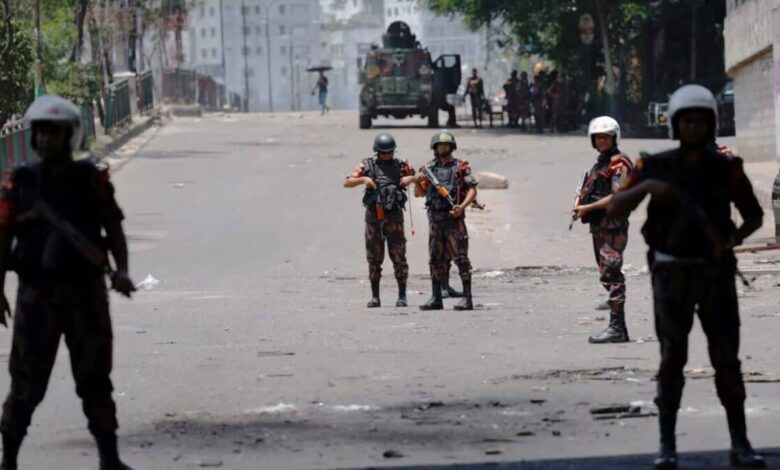
In the wake of a mass uprising in August, more than a dozen former top Bangladeshi government officials have been arrested and charged with “enabling massacres” during the violent crackdown on protests. A special tribunal has ordered investigators to finish investigating former Prime Minister Sheikh Hasina within a month.
Thousands of allies have been arrested since the collapse of Hasina’s regime on charges of involvement in a police crackdown that killed over 1,000 people during the chaos that saw her being ousted and exiled in India.
Prosecutor Mohammad Tajul Islam said on Monday that 13 defendants-11 former ministers, a judge, and an ex-government secretary-have been charged with command responsibility in the violent crackdown on student-led protests that brought down the government. “They are co-criminals in facilitating massacres through participation in planning, incitement to violence, giving orders for shoot-on-sight by law enforcement, and obstructing the prevention of genocide,” Islam said.
Hasina, who escaped to New Delhi by helicopter on August 5, was similarly expected to show up in Dhaka court on Monday to answer for “massacres, killings, and crimes against humanity.” However, she remains a fugitive, with prosecutors making threats of filing extradition requests repeatedly.
The head judge of the International Crimes Tribunal, Golam Mortuza Majumdar, has set a deadline of December 17 for investigators to conclude their work. The deadline comes after prosecutors requested more time to conduct the investigation.
The almost 16 years of Hasina’s rule have been marred by rampant human rights violations, including mass detentions and extrajudicial killings of political opponents. Prosecutor Islam underlined the fact that those crimes that resulted in mass murder and genocide were committed throughout her rule.
Interim leader and Nobel laureate Muhammad Yunus said in a recent statement that his administration would seek Hasina’s extradition from India—a potential complicating of relations with a key regional ally which had previously supported Hasina’s administration. Yunus alleged that as many as 3,500 people might have been abducted under her “autocratic” regime.
This summer, protests broke out across the country as college students demanded the abolition of a contentious quota system in government jobs that they said favored supporters of the ruling party. Eventually, the top court annulled the quota, but the demonstrations had mushroomed into broader demands for Hasina’s resignation.
The events are seen as one of the bloodiest episodes in Bangladesh’s history; the security forces dispersed peaceful protesters with the use of tear gas and live ammunition, leaving over 1,000 people dead within three weeks and thousands arrested.



